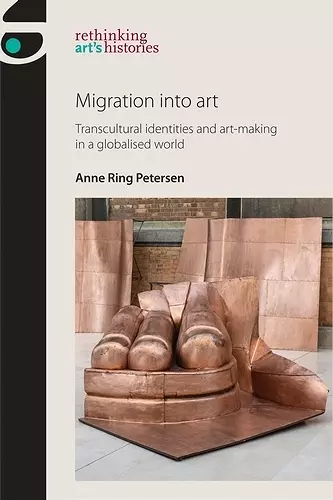Migration into Art
Transcultural Identities and Art-Making in a Globalised World
Format:Hardback
Publisher:Manchester University Press
Published:29th Nov '17
Currently unavailable, and unfortunately no date known when it will be back

This book addresses a topic of increasing importance to artists, art historians and scholars of cultural studies, migration studies and international relations: migration as a profoundly transforming force that has remodelled artistic and art institutional practices across the world. It explores contemporary art’s critical engagement with migration and globalisation as a key source for improving our understanding of how these processes transform identities, cultures, institutions and geopolitics. The author explores three interwoven issues of enduring interest: identity and belonging, institutional visibility and recognition of migrant artists, and the interrelations between aesthetics and politics, including the balancing of aesthetics, politics and ethics in representations of forced migration.
‘[…] an interesting view on the phenomenon of migration, which is not examined primarily through the prism of its current economic, social, political or security implications, but with regards to contemporary art. Despite this, the issue is embedded in a broader historical and theoretical framework – Petersen points out the so-called “mobility turn”, for instance. In the clarification of the concept of migration, she primarily refers to the book by T. J. Demos – The Migrant Image: The Art and Politics of Documentary During Global Crisis (2013), containing the definitions of the main types of migration (diaspora, refugees, nomadism), which she further specifies (circular migration). Regarding the analysis of specific works, she deals with the concept of “migratory aesthetics”, referring to Mieke Bal and Griselda Pollock and, to the correlations of aesthetics, politics and ethics.’
Jana Geržová, Profile / Contemporary Art Magazine, No. 4 (2018)
ISBN: 9781526121905
Dimensions: unknown
Weight: unknown
248 pages